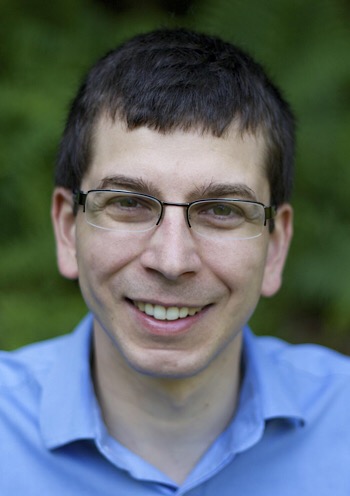ACADEMIA
Penn bioinformatics researcher receives grant from Chan Zuckerberg Initiative

Global project seeks to map all cell types as resource to aid health and reduce disease
Casey Greene, PhD, an assistant professor of Systems Pharmacology and Translational Therapeutics in the Perelman School of Medicine at the University of Pennsylvania, has been awarded funding from the Chan Zuckerberg Initiative, an advised fund of Silicon Valley Community Foundation. The Initiative was created by Facebook founder Mark Zuckerberg and his wife, Priscilla Chan, MD, a pediatrician.
This award will support Greene's work on the Human Cell Atlas, a global effort to map every type of cell in the human body as a resource for investigating health and disease. The Initiative's broad focus includes an emphasis on science through basic biomedical research and education through personalized learning.
Greene's research interests include bioinformatics, computational biology, data integration, machine learning, and systems genomics. The new funding is focused on developing open, shared supercomputational tools and algorithms. As one of 85 one-year awards to researchers worldwide, he will deploy a powerful, "unsupervised" machine-learning algorithm called a variational auto-encoder, which learns to identify and summarize patterns in large data sets without being instructed what features to look for. Previously, researchers applied a similar method to randomly selected YouTube images and the tool learned to recognize major recurring features of those images, including cats.
Modeled on how the human brain and nervous system operate, Greene's aim is to simulate, predict, and catalogue what happens to each cell type contained in the Human Cell Atlas under various scenarios: for example, how a given cell behaves in the context of a specific disease, after a person with that disease is treated with a drug, or how the cell changes during aging. The resulting information will be invaluable in better explaining how biological systems function at the cellular and organism levels, enabling researchers to eventually predict how the expression of every known gene might change under various conditions. This endeavor is vital for providing new treatments for patients and conducting life-saving research.
Previously, Greene and colleagues applied a denoising auto-encoder to genomic data for the first time to analyze how large data sets of genes in bacteria, in this case a notorious pathogen, are expressed under various conditions. He also published the first demonstration of denoising autoencoders in a biological context: an analysis of breast cancer biopsies.
In the spirit of open, collaborative development, researchers funded under the Chan Zuckerberg Initiative will work together and share findings and results to evaluate the strengths of different approaches.
